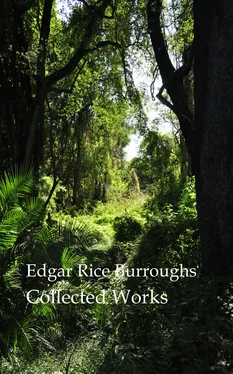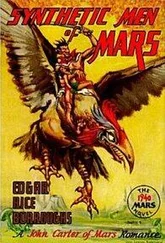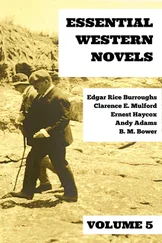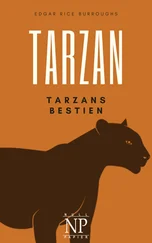"I do not know, Perry," I answered; "but thank God, if I am to die it shall not be by fire—that is all that I have feared. I can face the thought of any death but that."
Down, down went the mercury until it stood as low as it had seven miles from the surface of the earth, and then of a sudden the realization broke upon us that death was very near. Perry was the first to discover it. I saw him fussing with the valves that regulate the air supply. And at the same time I experienced difficulty in breathing. My head felt dizzy—my limbs heavy.
I saw Perry crumple in his seat. He gave himself a shake and sat erect again. Then he turned toward me.
"Good-bye, David," he said. "I guess this is the end," and then he smiled and closed his eyes.
"Good-bye, Perry, and good luck to you," I answered, smiling back at him. But I fought off that awful lethargy. I was very young—I did not want to die.
For an hour I battled against the cruelly enveloping death that surrounded me upon all sides. At first I found that by climbing high into the framework above me I could find more of the precious life-giving elements, and for a while these sustained me. It must have been an hour after Perry had succumbed that I at last came to the realization that I could no longer carry on this unequal struggle against the inevitable.
With my last flickering ray of consciousness I turned mechanically toward the distance meter. It stood at exactly five hundred miles from the earth's surface—and then of a sudden the huge thing that bore us came to a stop. The rattle of hurtling rock through the hollow jacket ceased. The wild racing of the giant drill betokened that it was running loose in AIR—and then another truth flashed upon me. The point of the prospector was ABOVE us. Slowly it dawned on me that since passing through the ice strata it had been above. We had turned in the ice and sped upward toward the earth's crust. Thank God! We were safe!
I put my nose to the intake pipe through which samples were to have been taken during the passage of the prospector through the earth, and my fondest hopes were realized—a flood of fresh air was pouring into the iron cabin. The reaction left me in a state of collapse, and I lost consciousness.
II
I was unconscious little more than an instant, for as I lunged forward from the crossbeam to which I had been clinging, and fell with a crash to the floor of the cabin, the shock brought me to myself.
My first concern was with Perry. I was horrified at the thought that upon the very threshold of salvation he might be dead. Tearing open his shirt I placed my ear to his breast. I could have cried with relief—his heart was beating quite regularly.
At the water tank I wetted my handkerchief, slapping it smartly across his forehead and face several times. In a moment I was rewarded by the raising of his lids. For a time he lay wide-eyed and quite uncomprehending. Then his scattered wits slowly foregathered, and he sat up sniffing the air with an expression of wonderment upon his face.
"Why, David," he cried at last, "it's air, as sure as I live. Why—why what does it mean? Where in the world are we? What has happened?"
"It means that we're back at the surface all right, Perry," I cried; "but where, I don't know. I haven't opened her up yet. Been too busy reviving you. Lord, man, but you had a close squeak!"
"You say we're back at the surface, David? How can that be? How long have I been unconscious?"
"Not long. We turned in the ice stratum. Don't you recall the sudden whirling of our seats? After that the drill was above you instead of below. We didn't notice it at the time; but I recall it now."
"You mean to say that we turned back in the ice stratum, David? That is not possible. The prospector cannot turn unless its nose is deflected from the outside—by some external force or resistance—the steering wheel within would have moved in response. The steering wheel has not budged, David, since we started. You know that."
I did know it; but here we were with our drill racing in pure air, and copious volumes of it pouring into the cabin.
"We couldn't have turned in the ice stratum, Perry, I know as well as you," I replied; "but the fact remains that we did, for here we are this minute at the surface of the earth again, and I am going out to see just where."
"Better wait till morning, David—it must be midnight now."
I glanced at the chronometer.
"Half after twelve. We have been out seventy-two hours, so it must be midnight. Nevertheless I am going to have a look at the blessed sky that I had given up all hope of ever seeing again," and so saying I lifted the bars from the inner door, and swung it open. There was quite a quantity of loose material in the jacket, and this I had to remove with a shovel to get at the opposite door in the outer shell.
In a short time I had removed enough of the earth and rock to the floor of the cabin to expose the door beyond. Perry was directly behind me as I threw it open. The upper half was above the surface of the ground. With an expression of surprise I turned and looked at Perry—it was broad day-light without!
"Something seems to have gone wrong either with our calculations or the chronometer," I said. Perry shook his head—there was a strange expression in his eyes.
"Let's have a look beyond that door, David," he cried.
Together we stepped out to stand in silent contemplation of a landscape at once weird and beautiful. Before us a low and level shore stretched down to a silent sea. As far as the eye could reach the surface of the water was dotted with countless tiny isles—some of towering, barren, granitic rock—others resplendent in gorgeous trappings of tropical vegetation, myriad starred with the magnificent splendor of vivid blooms.
Behind us rose a dark and forbidding wood of giant arborescent ferns intermingled with the commoner types of a primeval tropical forest. Huge creepers depended in great loops from tree to tree, dense under-brush overgrew a tangled mass of fallen trunks and branches. Upon the outer verge we could see the same splendid coloring of countless blossoms that glorified the islands, but within the dense shadows all seemed dark and gloomy as the grave.
And upon all the noonday sun poured its torrid rays out of a cloudless sky.
"Where on earth can we be?" I asked, turning to Perry.
For some moments the old man did not reply. He stood with bowed head, buried in deep thought. But at last he spoke.
"David," he said, "I am not so sure that we are ON earth."
"What do you mean Perry?" I cried. "Do you think that we are dead, and this is heaven?" He smiled, and turning, pointing to the nose of the prospector protruding from the ground at our backs.
"But for that, David, I might believe that we were indeed come to the country beyond the Styx. The prospector renders that theory untenable—it, certainly, could never have gone to heaven. However I am willing to concede that we actually may be in another world from that which we have always known. If we are not ON earth, there is every reason to believe that we may be IN it."
"We may have quartered through the earth's crust and come out upon some tropical island of the West Indies," I suggested. Again Perry shook his head.
"Let us wait and see, David," he replied, "and in the meantime suppose we do a bit of exploring up and down the coast—we may find a native who can enlighten us."
As we walked along the beach Perry gazed long and earnestly across the water. Evidently he was wrestling with a mighty problem.
"David," he said abruptly, "do you perceive anything unusual about the horizon?"
As I looked I began to appreciate the reason for the strangeness of the landscape that had haunted me from the first with an illusive suggestion of the bizarre and unnatural—THERE WAS NO HORIZON! As far as the eye could reach out the sea continued and upon its bosom floated tiny islands, those in the distance reduced to mere specks; but ever beyond them was the sea, until the impression became quite real that one was LOOKING UP at the most distant point that the eyes could fathom—the distance was lost in the distance. That was all—there was no clear-cut horizontal line marking the dip of the globe below the line of vision.
Читать дальше











